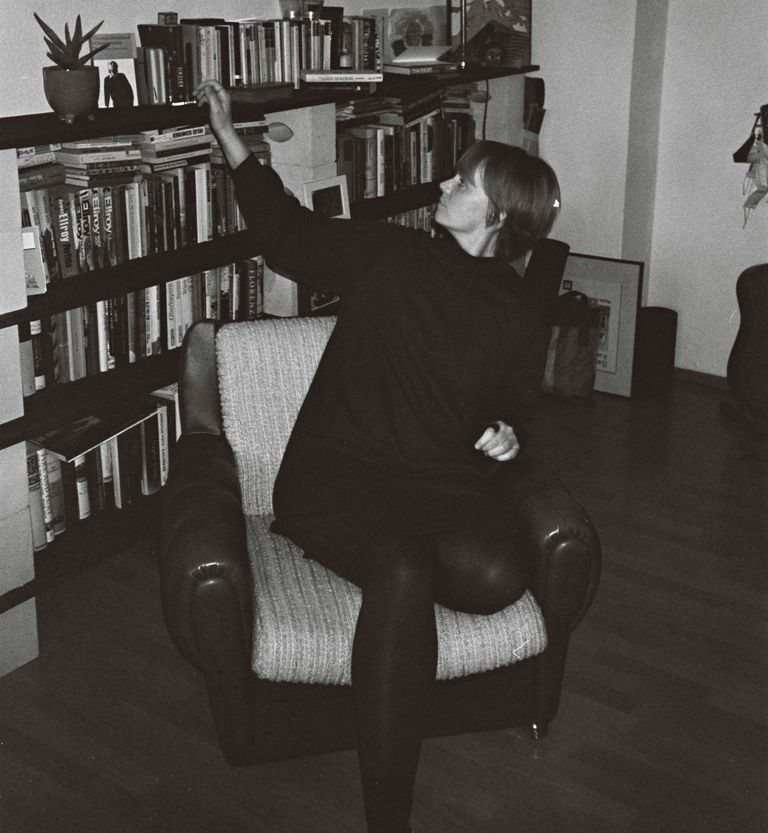Ludmilla Ostermann is
a freelance journalist, author and online editor.
She lives and writes in Berlin and North Rhine-Westphalia.
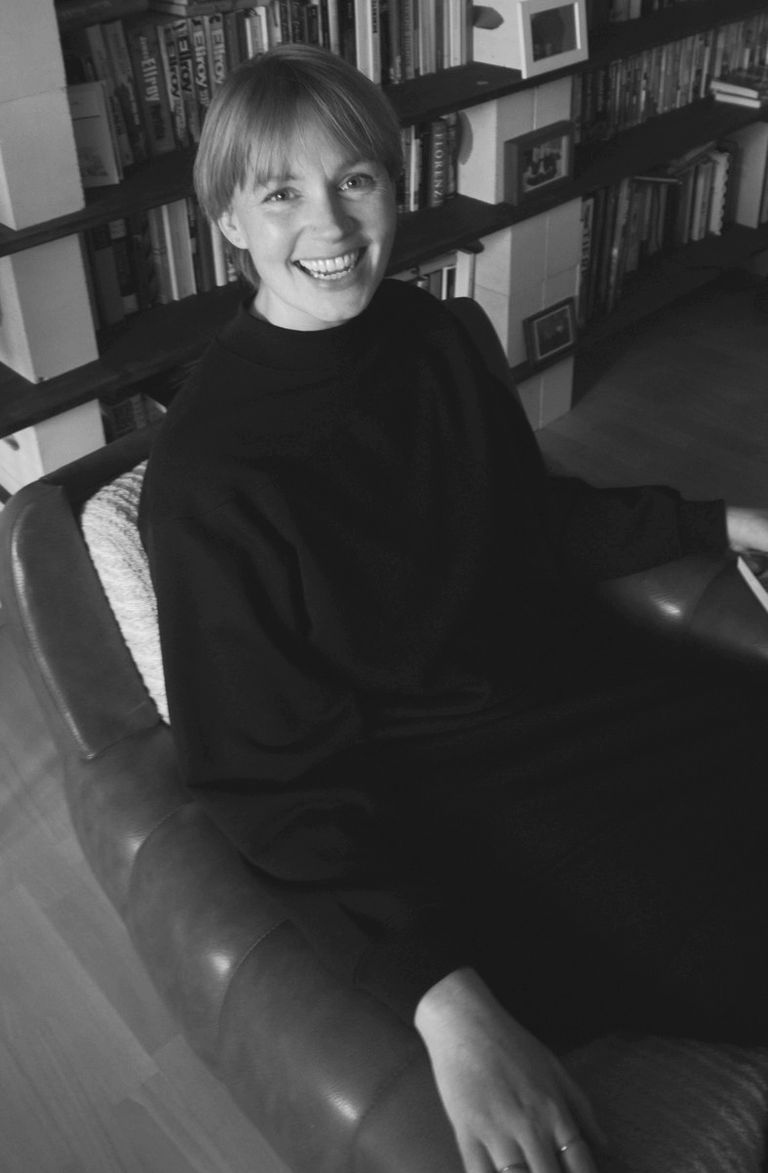
about me
As a freelancer - I'm 15 and consider riding a scooter totally cool - my father drives me in his dark blue Ford from appointment to appointment across the flat part of the Soester Börde. While he waits in the car, I make my first journalistic experiences in the local clubhouses of poultry farmers and carnivalists.
At 19, an experimental phase begins: I now drive myself, I study German, English and history in Bielefeld and switch from daily newspaper to magazine, from club reporting to culture. For someone who first reads the horoscopes in the TV guide Prisma, disenchantment comes in my early 20s: during an internship at a TV magazine I predict the future - four times love, four times health, four times career, please!
Things get more serious in my mid-20s: I work for Westfalen-Blatt, a daily newspaper in East Westphalia's upper centre. Politics, business, culture - it's full days and full pages. Until, yes, until it goes to the provinces: Bockhorst, Kohlstädt, Niederntudorf. I find myself at folk festivals, in the meat factory, on the edge of the football pitch of the district league A club. The days are fuller, the summer holes longer.
It is the time when I understand the importance of local journalism: Every day I experience the realities of my readers' lives. I make their experiences. I am an agent of the citizens, but at the same time I ask question. In this highly individualised society, local journalism speaks to everyone, regardless of educational background or profession. The journalist Ernst Elitz once so aptly said: "The regional newspaper is the last medium of integration".
I also experience a direct line to readers in online journalism. In my mid-30s, I become part of a young team: we are creative, we are fast, we get clicks. I learn something new every day, produce videos, write texts for the socials, engage with the community.
Then the big city calls: in 2019 I leave Bielefeld and go to Berlin, away from the daily newspaper, into the museum. I'm part of the team when Futurium opens its doors in autumn 2019. The website of the House of the Future is my new playground. The topics are scientific and - you guessed it - about the future, about dining in virtual reality, the morality of machines, mobility in the age of the frontier and New Work.
I am now implementing my very personal concept of modern work here - as a part time freelancer with a focus on political and social topics, personal stories, interviews and portraits. And as co-editor of a book about the war in Ukraine.
services
journalist
As a journalist, I write stories for the various media: interviews, portraits and reports. My focus is on socio-political topics - broken down to the everyday level. I explain scientific topics in a simple and understandable way.
copywriter
As a copywriter, I create content for websites, flyers or brochures. A personal conversation tells me which style and text selection fits the needs of the client and presents their product or service perfectly - in print or online.
editor
As an editor and proofreader, I check spelling, grammar, punctuation, style and content and get the best out of already good texts. I edit corporate and scientific texts, press releases, non-fictional, technical or children's books.
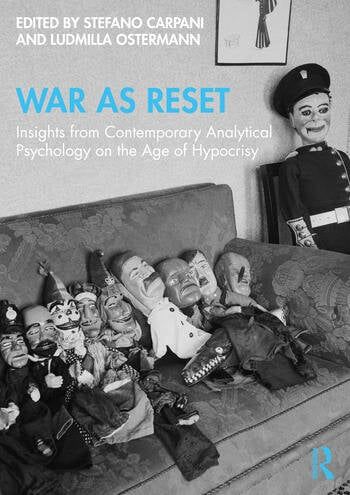
WAR AS RESET – Insights from Contemporary Analytical Psychology on the Age of Hypocrisy
In a time increasingly shaped—and shaken—by war and social upheaval, this book offers a thoughtful alternative to the noise of the 24-hour media cycle. Bringing analytical psychology into dialogue with global events, it delves into the deeper meanings behind our collective anxieties and encourages readers to engage with the uncomfortable truths shaping both our present and our future.
articles
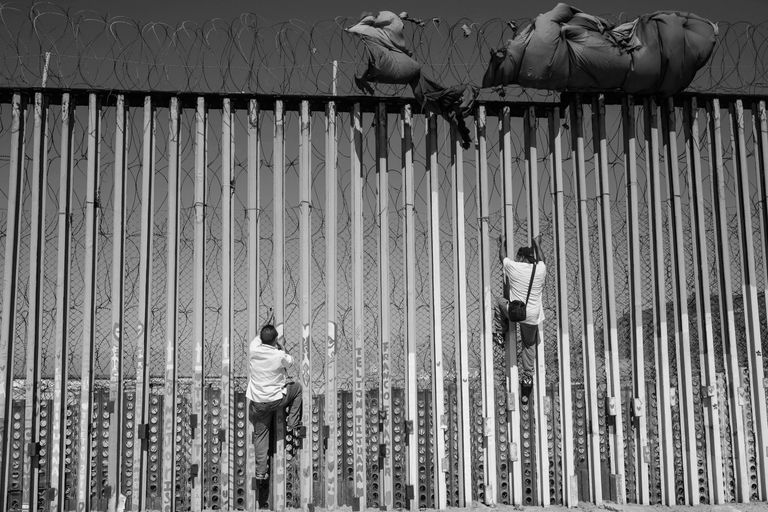
"Globalisation is rarely a blanket opening for everything or everyone"
While people in Europe can travel nonchalantly from A to B, people from the Global South experience quite a different feeling of mobility. In his book “Sortiermaschinen” (“Sorting Machines”), macrosociologist Steffen Mau explores the narrative of dissolving borders – one that exists in the face of the immobilisation of large parts of the world’s population. In an interview with Futurium’s online editor Ludmilla Ostermann, he explains this paradox and talks about the borders of today’s world.
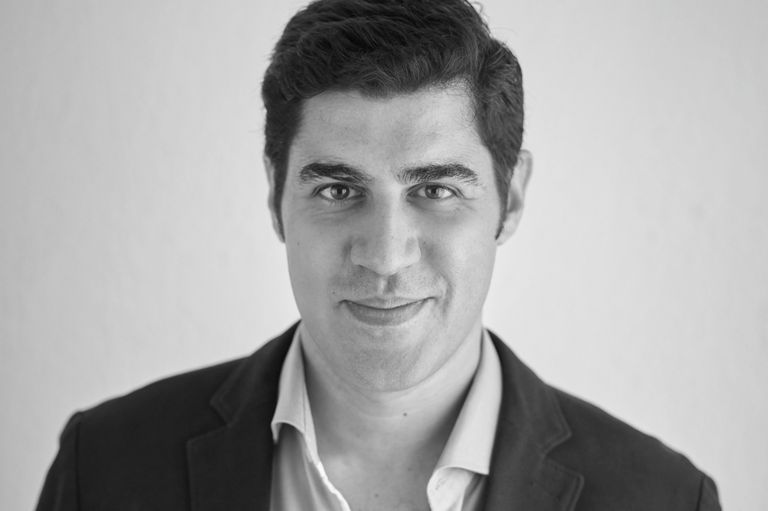
Parag Khanna: The Melting Pot is our Destiny
By 2050, half the world’s population will be living nomadically. This is the proposition made by political scientist Parag Khanna in his book “Move – The Forces Uprooting Us”. The reasons for this mass migration are manifold: climate change, political unrest, demographic imbalances and economic displacement are all accelerating mobility. Khanna spoke to Futurium online editor Ludmilla Ostermann about the need for mobility in a world full of borders.
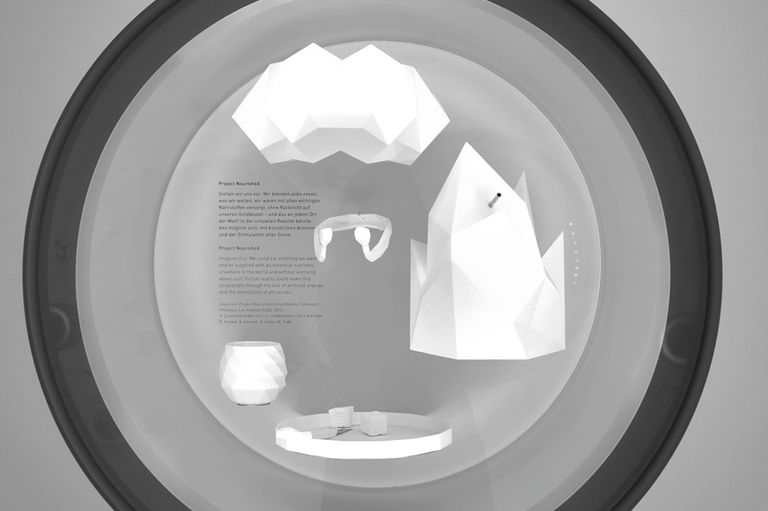
Extra Cheese, please!
What if we could eat just about everything, without ever having to worry about calories or health consequences? Project Nourished, which provides a gastronomical virtual reality experience, could make this wish come true. Thanks to VR goggles and other devices, users perceive jelly-like cubes from the 3D printer as mouth-watering dishes straight from a gourmet’s kitchen.
contact
Write me an e-mail:

